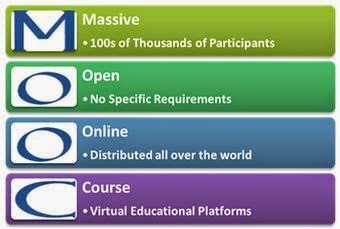- Public Policy
- Leadership
- Funding
- News & Events
- About the Center
Back to Top Nav
Back to Top Nav
Back to Top Nav
Back to Top Nav

For current full-time residential students, it’s difficult to imagine what it’s like to learn in a classroom without a teacher. However, this is where the state of higher education is currently headed: to massive open online courses, or MOOCs. Jeffrey R. Young, a fellow at the Berkman Center for Internet & Society at Harvard University, as well as a technology editor for the Chronicle of Higher Education, is an expert on MOOCs and shared with us his knowledge of them in his lecture entitled, “Pop-Up Learning: How Technology is Changing and Challenging College.”
Young began his public lecture by discussing what exactly these MOOCs are. You’ve probably heard of some of them before – they vary according to target user, type of curriculum, and some are even expanding to residential campuses. Examples include Coursera, Khan Academy, Udacity and edX. An avid tester of MOOCs, Young said that his personal experience has differed with each program, which led to an interesting discussion regarding the effectiveness of MOOCs. Apparently, many people find them to be effective, as there has been incredible investment in these types of educational “experiments” coming from venture capital firms, companies, universities and nonprofits. Young says, “within college campuses there isn’t much variety or many options - this is a perfect opportunity for business disruption.”
Fundamentally, MOOCs challenge the way that courses are presented to students on college campuses. Whether it’s to obtain a Bachelor’s degree or simply for homework help, it is undeniable that MOOCs are becoming increasingly popular, so much so that several prestigious universities are offering them in addition to traditional courses. How do professors and teachers feel about this, and will MOOCs become successful in the future? It’s still under debate, but no one can deny that technology has already changed the landscape of higher education.